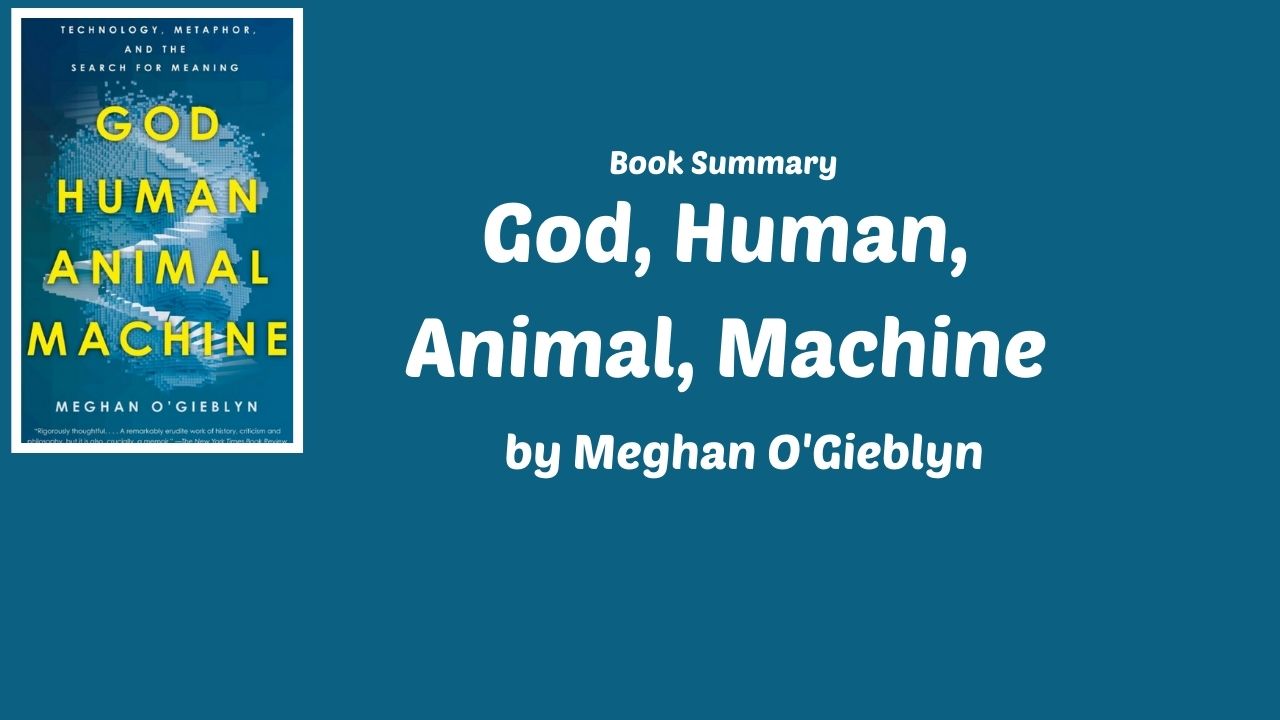
God, Human, Animal, Machine: Technology, Metaphor, and the Search for Meaning#
This book offers a nuanced perspective on the intersections of faith, technology, and the search for meaning in the modern world. Here is a 10-point summary of God, Human, Animal, Machine: Technology, Metaphor, and the Search for Meaning by Meghan O’Gieblyn:
Exploration of Faith and Technology: O’Gieblyn reflects on her journey from evangelical Christianity to atheism and how her background in religion informs her understanding of modern technology, particularly AI and transhumanism.
Technology as a New Religion: She draws parallels between religious belief and the promises of technology, especially the idea of salvation through technological advancement and immortality through digital means.
Consciousness and AI: The book delves into the philosophical question of whether machines can have consciousness and the implications this has for humanity’s understanding of the self and the soul.
Transhumanism and Immortality: O’Gieblyn examines the transhumanist movement, which seeks to transcend human limitations through technology, and questions its underlying assumptions about progress, perfection, and immortality.
Mind-Body Dualism: She discusses the concept of mind-body dualism, both in religious terms (soul vs. body) and in technological terms (mind vs. machine), and critiques the reduction of human experience to data.
Human Exceptionalism: The book challenges the traditional notion that humans are fundamentally different from animals or machines, suggesting that advances in AI and neuroscience may erode the distinctions between them.
Ethics of AI: O’Gieblyn raises ethical questions about creating machines in our own image and the potential dangers of developing technologies that could surpass human control or understanding.
Meaning and Existentialism: The book grapples with existential questions about the meaning of life in a world where traditional religious frameworks are being replaced by secular technologies and scientific understanding.
Personal Narrative: Interwoven throughout is O’Gieblyn’s personal story, including her own crisis of faith and her attempts to find meaning in a world increasingly dominated by technology.
Critique of Technological Utopianism: Finally, the book critiques the utopian visions of Silicon Valley, arguing that technology alone cannot solve the deeper existential and spiritual crises faced by humanity.


Comments: